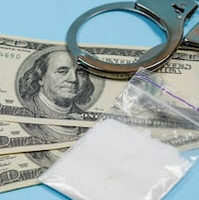Illegal Drug Possession Crimes Under Maryland Law

Often referred to legally as controlled substances, illegal drugs can be extremely addictive and dangerous. To protect the public from this risk, Maryland enacted strict laws against and penalties for the possession of illegal drugs and other controlled substances. If a person possesses a controlled substance without valid authorization, they can face criminal fines and even jail time upon conviction.
What is the Definition of a Drug Possession Crime?
Maryland Code of Criminal Law Section 5-601 details the definition of a drug possession crime. Under Section 5-601, it is unlawful to possess or administer a controlled substance without a valid medical prescription. It is also unlawful to obtain or attempt to obtain a controlled substance through:
- Deception, fraud, misrepresentation or subterfuge;
- Forgery or alteration of a valid prescription;
- Concealment of important and material facts;
- Utilization of a false name or address;
- Misrepresentation as an authorized manufacturer, distributor or provider;
- Creation, issuance or presentation of a false or counterfeit prescription.
What are the Penalties for Drug Possession?
Section 5-601 also details the penalties for drug possession crimes. Under Maryland law, the penalties for this crime change based on the number of offenses. For example:
- First Offense — The offender is guilty of a misdemeanor and faces imprisonment for up to 12 months and a maximum criminal fine of $5,000;
- Second or Third Offense — The offender is guilty of a misdemeanor and faces imprisonment for up to 18 months and a maximum criminal fine of $5,000; and
- Fourth or Subsequent Offense — The offender is guilty of a misdemeanor and faces imprisonment for up to 24 months and a maximum criminal fine of $5,000.
That being said, Maryland law does provide a different penalty structure for drug possession offenses involving marijuana or defendants under age 21.
What is the Definition of Possession with Intent to Distribute?
Maryland Code of Criminal Law Section 5-602 outlines the definition of drug possession with intent to distribute. Under Section 5-602, it is unlawful to possess a controlled substance in such a quantity that would indicate an intent to distribute. Stated otherwise, even if a person fails to carry out a distribution crime, they can still face severe penalties for possessing a controlled substance with the intent to distribute.
What are the Penalties for Possession with Intent to Distribute?
Maryland Code of Criminal Law Section 5-607 provides the standard penalties for possession with intent to distribute. In many cases, this is a felony crime. The expected punishment includes the potential for up to five years in prison and $15,000 in criminal fines, though certain aggravating circumstances — such as repeat offenses — can trigger more aggressive penalties under Maryland law.
Contact Us Today for Help
If you are facing criminal charges for a drug possession crime in Maryland, it can be distinctly helpful to consult with a seasoned criminal defense attorney. The attorneys at Schlaich & Thompson, Chartered in Bel Air, Maryland, have more than 60 years of combined legal experience in family law and criminal defense, including drug possession crimes. If you need legal help, contact us today for an initial consultation.
Resource:
mgaleg.maryland.gov/webmga/frmStatutesText.aspx?article=gcr§ion=5-601&ext=html&session=2019RS























